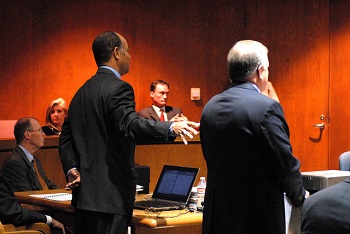Adjournments and prosection of suits in Uganda
.jpeg)
Adjournments And Prosecutions Of Suits In Uganda Under Order 17 rule 1(Civil Procedure Rules), the court may at any stage of the suit if sufficient cause is shown, grant time to the parties, or to any of them, and may from time to time adjourn the hearing of the suit. An adjournment is not granted as of right but is only granted for sufficient cause. It involves the exercise of discretion by the court and this must be used judiciously. An adjournment can be denied if it will occasion an injustice. If an application is vague and half hearted, the trial judge is justified in refusing the adjournment as was held in Birungi Wilbon V Akamba Ug Ltd. S.C.C.A. No. 12/94. Court can adjourn for any reason which in its discretion is sufficient. If a new matter is raised at the trial which catches a party unaware, an adjournment if applied for should be granted to the party concerned to prepare his or her case in response to the matter. This was held in Ssalongo V Nantegol...


